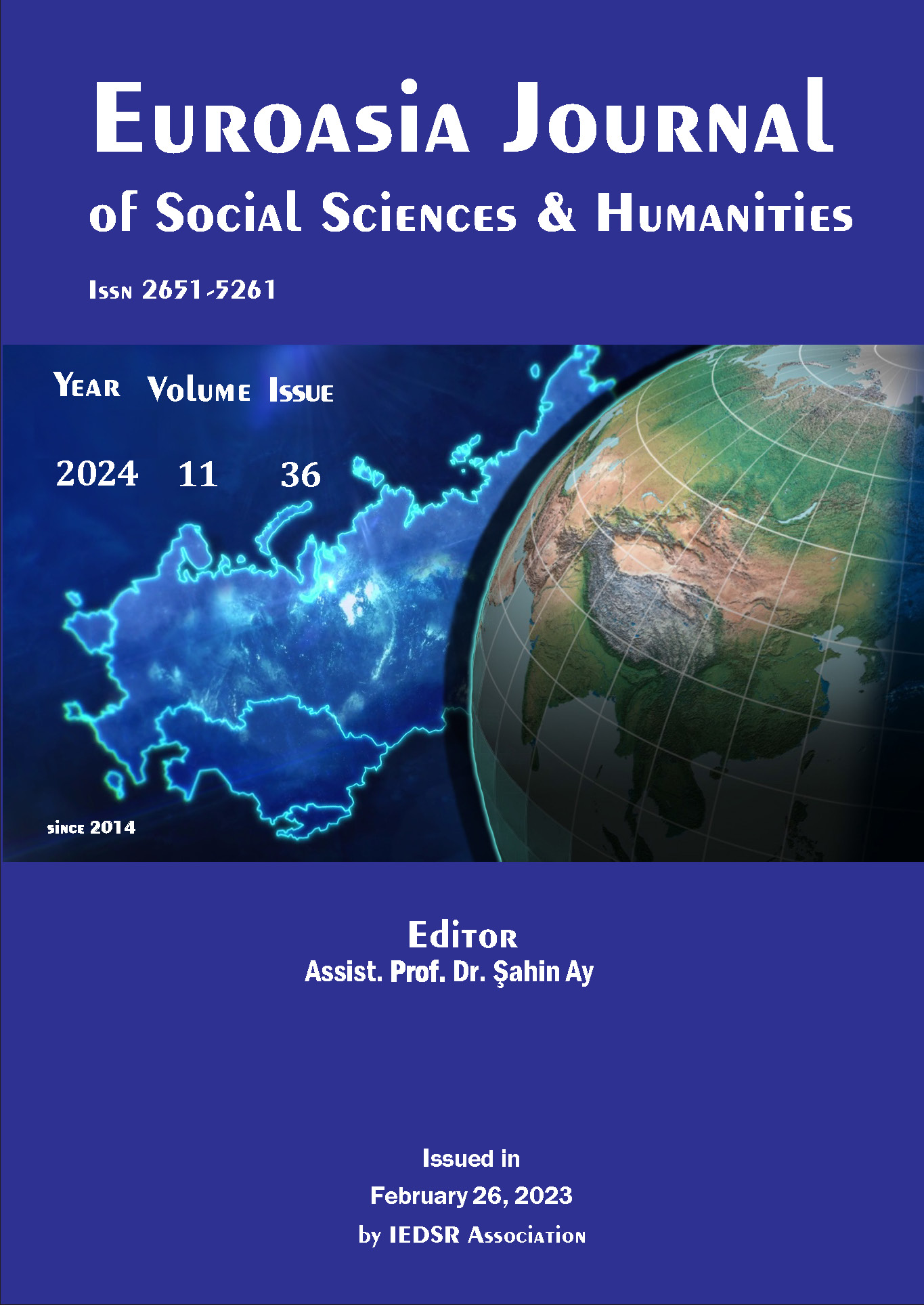The Effects of Behavioral Finance on the Emergence of Participation Banking
DOI:
https://doi.org/10.5281/zenodo.12705396Keywords:
Traditional Finance, Behavioral Finance, Interest Sensitivity, Sharing, Participation BankingAbstract
According to the traditional finance approach, which is a sub-branch of the traditional economics approach, investors and savers exhibit only rational attitudes in their decision-making processes, and individuals do not include their emotions, beliefs or value judgments in their predictions about their future and decisions they will make. In the traditional finance hypothesis, it is accepted that individual, who is considered to be completely rational, does not have any beliefs or moral values, does not have emotions when making decisions, and therefore acts only with guidance of his mental faculties. In opposition to this approach, which is depicted with such harsh boundaries and is far from behavior of a real individual in life, the behavioral finance approach, which takes into account that people's emotions, values and psychology have an impact on decisions they make and behaviors they will implement, has emerged and breaks the solid walls of traditional finance has come out. In other words, behavioral finance does not see individual as a bionic machine, but adds a human perspective to traditional finance and includes individuals' emotional approaches and social responsibilities in financial decision-making processes of investors and savers. The basis of Islamic economics is not only compliance with the orders and prohibitions of Islam, but also the effects on other individuals in society are taken into account with a holistic approach, taking into account the effects of human behavior. While personal interests are the primary priority in traditional economic models, in Islamic economic models social development is prioritized, life is evaluated as a whole, and individuals are asked to constantly strive to develop society they live in throughout their lives. Contrary to all negativities that arise from the traditional economic approach, especially in capital-centered economies, where individual thinks only of his own benefits and interests, Islamic economic system displays a fair approach in distributing production resources and dividing produced outputs. In this context, Muslims with interest sensitivity, who do not want to make investment and savings decisions within conventional banking system, which forms the basis of interest-based financial system, which mainly follows traces of traditional finance, but on the contrary, considers welfare of society even when making decisions regarding their own rights and interests, and emphasizes culture of sharing, are in the world. They paved the way for emergence of participation banking system as an alternative to traditional banking. In our study, unlike the economic person who is assumed to make only rational decisions and sees his own interests above all else, the person who makes decisions with Islamic philosophy of thought, considering social and economic benefit of other individuals and society in general, is discussed. In this regard, emergence of interest-free finance system, which brings a new perspective to financial systems based on sharing and division, and effects of the behavioral finance approach on emergence of Participation Banking, the current representative of this system, are examined and the results it produces are revealed.
Downloads
References
Bennett, A., Parry, J. ve Wirth, C. (2017). Fundamentals of finance: Financial institutions and markets, personal finance, financial management (Fourth Edition). New Zealand: Massey University Press.
Bostancı, F. (2004). Davranışçı Finans, Yeterlilik Etüdü Çalışması, SPK Yayınları, Ankara.
Bostancı, F. (2003). Davranışçı Finans Yeterlilik Etüdü, S.P.K. Yayım No:57, Ankara.
Dikmen, S. (2019). Katılım Bankacılığı ve Türkiye ekonomisine etkileri.
Yayımlanmamış Yüksek Lisans Tezi. Ankara Yıldırım Beyazıt Üniversitesi, Ankara.
Hafiane, M. A., Allouch, F. (2021). Factors Influencing Adoption Of Islamic Banking in Morocco: An Exploratory Study. Business Perspective Review 3.
Kıyılar, M., Akkaya, M. (2016). Davranışsal Finans. İstanbul: Literatür Yayıncılık.
Nicholas B., Richard T. (2002). A Survey Of Behavioral Finance, The Handbook of the Economics Of Finance.
Nofsinger, R. (2005). The Psychology of Investing, Pearson Education Hall, 2nd Edition.
Özsoy, İ., Görmez, B., Mekik, S. (2013). Türkiye’de Katılım Bankalarının Tercih Edilme Sebepleri: Ampirik Bir Tetkik. Celal Bayar Üniversitesi İktisadi ve İdari Bilimler Fakültesi Dergisi, 1(20).
Parsa, M. (2020). Efficiency and Stability of Islamic vs. Conventional Banking Models: A Meta Frontier Analysis. Journal of Sustainable Finance & Investment.
Serdar Kaya (2007) Serbest Piyasa, İnsan ve Sahte Özgürlükler Dünyası, http://www.liberal-dt.org.tr/index.php?lang=tr&message=article&art=455 (20.01.2007).
Tekin, B. (2020). Davranışsal Finans-İslami Finans Etkileşimi, İslam İktisadı ve Finans Üzerine Çalışmalar, Ed. Musa Öztürk, 1. Basım, Ankara: Nobel Akademik Yayıncılık.
Timuçin, Y. (2004). Risk ve Belirsizlik Algılamasının İktisadi Davranışlara Yansımaları, Muğla Üniversitesi Tartışma Tebliğ, Working Paper No: 2004/05.
Ziraat Katılım Bankası (2024). Katılım Bankacılığını Tanıyın https://www.ziraatkatilim.com.tr/bizi-taniyin/katilim-bankaciligini-taniyin (06.02.2024).
Downloads
Published
How to Cite
Issue
Section
License
Copyright (c) 2024 EUROASIA JOURNAL OF SOCIAL SCIENCES & HUMANITIES

This work is licensed under a Creative Commons Attribution-NonCommercial 4.0 International License.

